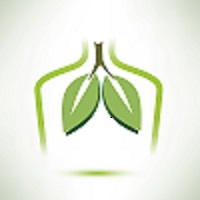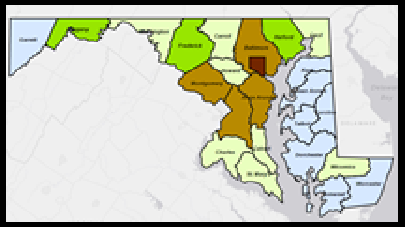
Asthma
Asthma is a life threatening, disease that affects the airways carrying oxygen in and out of the lungs and, affecting an individual's ability to breath. Asthma can be managed but not cured. If you have asthma, the inside of these airways is irritated and swollen. The airways are sensitive and more likely to react strongly to infections, allergens, like pollen in the air, or irritants, like smoke and air pollution. Asthma can develop at any point in someone’s life, and it cannot be cured, although it can be controlled.
When an asthma attack happens, it’s hard to get enough air into and out of your lungs. Your chest feels tight. You may want to cough or wheeze. If not treated, an asthma attack can be life-threatening.
Asthma and the Environment
An asthma attack can happen when someone with asthma is exposed to an asthma trigger. These triggers include allergens (house dust mites, pet dander, cockroaches, and molds), irritants (tobacco smoke, air pollution), exercise, stress, and changes in temperature, and certain chemicals found in the workplace and elsewhere. Some people with asthma are sensitive to only a few triggers, while others may have many triggers. An important part of prevention is to reduce exposure to triggers, where possible.
Asthma in Maryland
Asthma hospitalizations and emergency department (ED) visits data are available through the Environmental Public Health Tracking (EPHT) portal. The EPHT portal (http://phpa.dhmh.maryland.gov/oehfp/eh/tracking/Pages/home.aspx) allows you to view maps, charts, and tables of asthma data across the state and in your community. Asthma data by race, ethnicity, and gender can be explored using the table query:
What You Can Do
The most important thing you can do is to become educated about asthma. Even if you don’t have anyone with asthma in your family, you probably know someone with asthma. There are many resources available online and through your health care provider. If you do have asthma, it is important to follow your individual asthma management plan with your health care provider. It is also important to avoid environmental triggers as much as possible. Make sure you know what the air quality is, so that you can avoid exposure to ozone, particulate matter, and other asthma triggers during bad air quality days.
Asthma Action Plan
The Maryland Chapter of the American Academy of Pediatrics and DHMH, following the NIH-NHLBI's 'Guidelines for the Diagnosis and Management of Asthma' recommends that all asthma patients use an Asthma Action Plan for proper asthma management. Asthma Action Plans are a communication tool and a key component of a comprehensive education program for asthma management. The Asthma Action Plan includes information related to treatment schedule and patient self-management. The Asthma Action Plan can be found here
A safe and supportive learning environment benefits students as well as educators. In an effort to promote healthy schools for children and staff with asthma, the Maryland Department of Health and Mental Hygiene has created the Asthma Friendly School program to encourage and recognize Maryland schools that create and sustain safe, supportive, and asthma-friendly environments.
An asthma friendly school supports the health and academic success of students through maximizing asthma management, reducing environmental asthma triggers in the school environment, and building asthma education and awareness programs for students and staff. Chances for success are better when the entire school community takes part – school health services program staff, school administrators and staff, community health care providers along with the students and parents/guardians. Here is your chance to support students with asthma!
The Asthma Friendly School application can be found here.

Asthma Friendly Child Care
Children often spend many hours of their day at child care, either in a center or family home. To address the indoor and outdoor child care environment and educate child care providers on the burden of asthma, the Maryland Department of Health and Mental Hygiene has created the Asthma Friendly Child Care program. The goal of the program is to support the health and early learning of young children through providing excellent asthma management, reducing environmental asthma triggers, and providing asthma education and awareness programs for children in care.
Directions on how to apply to become an Asthma Friendly Child Care, can be found here.
The application for the Asthma Friendly Child Care program is made up of two modules. Both modules must be filled out and submitted to ensure completion of application.
The Environmental Module can be found here.
The Management Module can be found here.
Asthma Reporting
Asthma in general is not a reportable condition, unless a doctor finds that it is occupational. Physicians can report cases of occupational asthma by downloading and submitting a report
Asthma Hospitalization Maps

For more information, call the Environmental Health Helpline:
1-866-703-3266 or email dhmh.envhealth@maryland.gov

